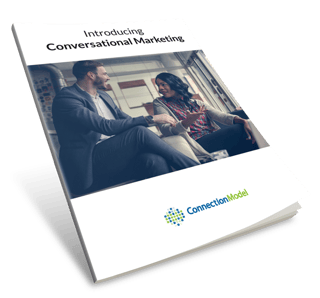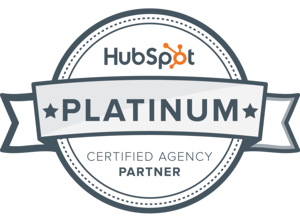 "BUT WAIT, THERE'S MORE!"
"BUT WAIT, THERE'S MORE!"
Without saying anything else, we're sure you were just instantly transported back to the last time you watched an SlapChop infomercial discussing all of its perks, features, and more.
"BUT WAIT, THERE'S MORE! When you order right now, you get xyz and abc TOO!"
Just like this famous catch phrase has been overused in every single infomercial since the beginning of infomercials, there are words and phrases that have been overused in both traditional and digital marketing, too. In fact, words and phrases like this are such a go-to in marketing campaigns that customers have effectively learned to simply tune them out.
The instant they see a billboard about some "award-winning" company, or the phrase "money back guaranteed!" or pretty much "anything guaranteed!" or "epic" or "revolutionary," they're not interested. They've heard it a million times. As it turns out, consumers think that not everything is epic and revolutionary. Who knew?
It's time to start thinking "outside the box" (kidding, that's another overused phrase). But it is time to stop using the first phrases that come to mind and think about what really makes your business, industry, product, or service special.
 The truth is, people don't care if your business is "award-winning." Instead, they care about case studies, customer relationships, and proven results.
The truth is, people don't care if your business is "award-winning." Instead, they care about case studies, customer relationships, and proven results.
Let's talk about a few specific overused marketing words and phrases that every business loves to throw around, and what you can use instead.
1. Award-Winning
We're coming back to this one for a second. Sure, it can be exciting for your company when you win an award, but most of your audience isn't going to know your specific industry awards, so it simply isn't going to matter to them.
Include this information on your website, but don't tout it around in your marketing messaging. Because not only does it not matter to your audience that you've won an award, nearly every award-winning business touts their extremely niche award, so it's an overused phrase that has become largely meaningless.
2. Best In Class
This is one of those ones that is really matter of opinion, or straight up fabricated. Because how would you know? What are the indicators of the best? And out of what pool?
Customers don't want to hear that you're the best (because they probably won't believe you). They just need to know how you're going to be the best for them.
3. Epic
Revisit this one as well. Climbing Mt. Everest is epic. The Odyssey is an epic. Your product/service? Its results? Probably not epic.
It is best to stay away from this and other hyperbolic words in your marketing messaging. Other examples include miracle (your business is a divine act?), revolutionary (unless you cured cancer or found the answer to world peace, probably not), one of a kind (except for all of your competitors), unbelievable, innovative, unique, exciting, etc.
4. Expert/Experienced
Well, you are running a business. So naturally, we'd hope you'd be experts/experienced/pros/knowledgeable at what you do.
This one is simply a given. If you're offering services in exchange for money, you should be an expert.
5. Friendly
This is another given. Your customers certainly hope that they'll be working with friendly customer service reps anytime they're working with a business.
6. Guaranteed
Nothing in life is guaranteed except death and taxes. You don't want to end up putting your foot in your mouth by saying your business guarantees anything. Talk about proven results in the past, but don't say that anything is guaranteed. After all, every business/industry/client/customer is different, and what works for one doesn't always work for another.
7. Hurry
Whether it comes to a digital ad or an email newsletter, the word "hurry" is one that business owners just love. Yes, we want to create a sense of urgency and get people to buy now, but it's better to create a set deadline and let your audience know what it is, rather than repeating the word "hurry" over and over again.
8. Number One
This is similar to best in class. How would you know that your business is number one? It's simply not possible to have this information as fact, and you're almost certainly overselling yourself.
So what words can you use in place of these?
More Desirable Words for Marketing
Well first, you want to make sure that your messaging is always clear, concise, honest, and not overreaching. You don't want to overpromise, even if you really do believe that your product is unique, revolutionary, and innovative.
Instead, be realistic. Focus on what you've done for other clients or customers. Sell the real-life experience. Make sure your customer service reps and account managers go above and beyond for clients/customers.
Here are a few great alternatives:
1. Sale Words
Use specific words when you have a sale to let customers know exactly what they're getting. Absolutely no hyperbole, just savings and deals for your audience.
- Free (If you have a doorbuster or a freebie for a lead magnet to generate more email signups)
- Buy one, get one (BOGO)
- % Off
2. Results
As we said, people don't want to hear about your self-touted "revolutionary" new product. They want to hear about results. Real-life results and social proof that your company has been able to show. That's what is going to resonate with your audience in your marketing messaging.
Other options are:
- Effective
- Verified
- Approved (especially if you include a certain group of people like "Dentist-Approved" or "Mom-Approved")
3. Deal Ends Today
Or "deal ends this weekend" or "only this month" or "flash sale" or another phrase that creates urgency but also lets people know exactly how long they have to take action. Flash sales tend to be only for a day or a few hours, so it grabs attention and lets people know they need to act fast.
4. Helpful Words
These are more acceptable words to describe your company, product, service, or offer than the hyperbolic words we discussed earlier.
- Authentic
- Hassle-free
- No obligation
- Safe
- Bargain
Curious if your marketing messaging needs work? Request an assessment and we'd be happy to take a look and offer suggestions for improvement!
Written By: David Carpenter


